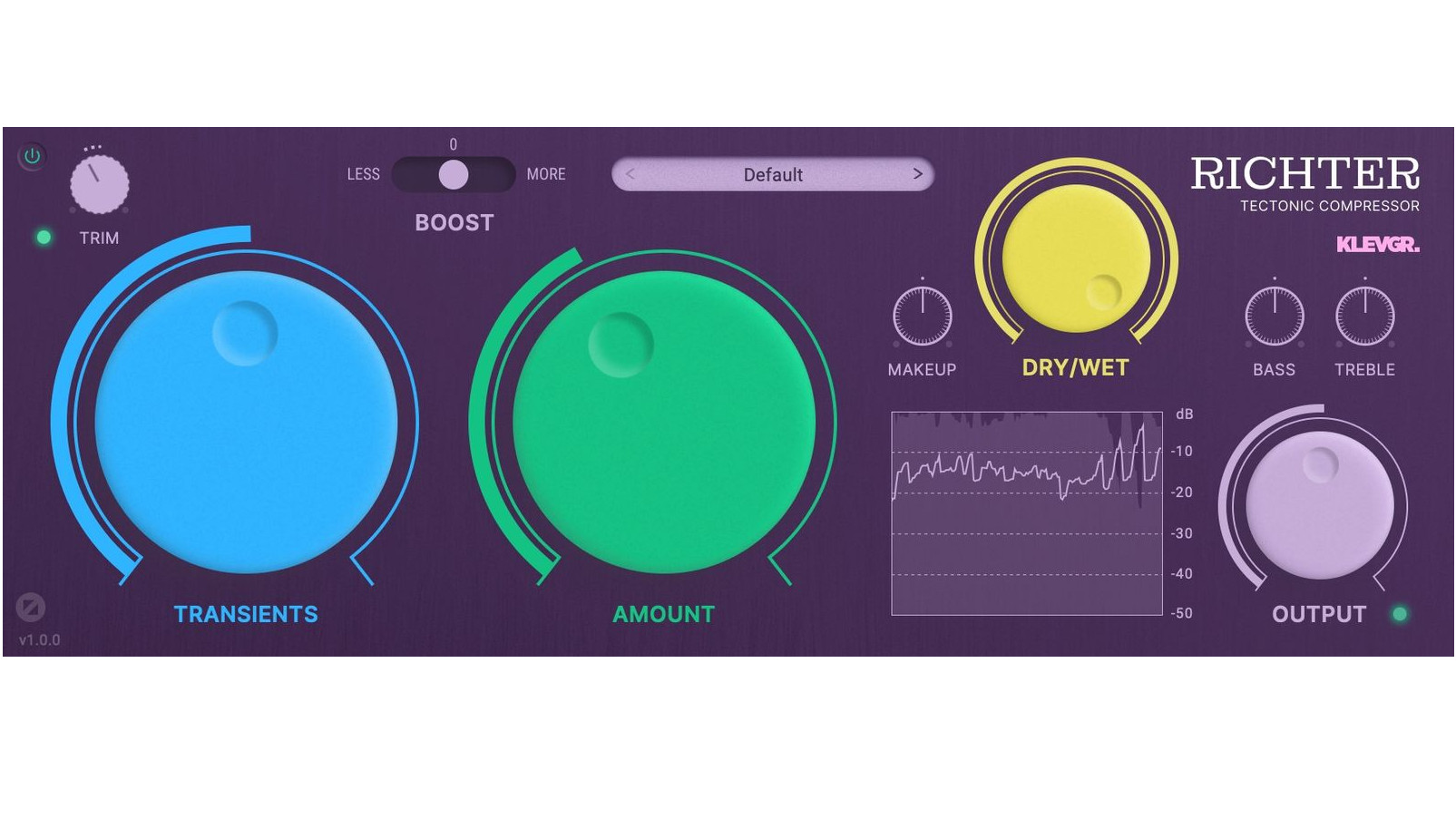Klevgrand’s Richter is a ‘tectonic’, super-heavy compressor plugin that the company thinks is off the scale
Unconventional but apparently intuitive plugin promises to set off a sonic earthquake
Want all the hottest music and gear news, reviews, deals, features and more, direct to your inbox? Sign up here.
You are now subscribed
Your newsletter sign-up was successful
Yes, it’s another compressor plugin, but Klevgrand believes that, with Richter, it’s managed to do something a bit different. This “tectonic” device is designed to achieve earth-shaking levels of compression without creating too many audio artefacts, and all via a very simple interface.
There are just two main controls: Transients and Amount. The first controls “how the internal envelope follower will react to transients vs continuous/lasting sounds,” while the second dictates how much compression is applied.
The idea is that you use these two knobs in tandem to get the style and amount of compression that you want, whether that be on vocals, drums or anything else. A three-step boost switch can be engaged to push things even harder, and you can also adjust the makeup gain, dry/wet mix, input trim and a simple EQ. If you’re looking for starting points, check out the factory presets.
The effect that Richter is having is visualised in the waveform view, but the idea seems to be that you’ll spend less time analysing and examining and more time tweaking and listening.
Richter runs on PC and Mac in VST/AU/AAX formats and is currently available for the introductory price of $30. This applies until 15 June, after which the price goes up to $70.
There’s also an iOS version (AUv3 and standalone) that’s currently available for the introductory price of $5. This will rise to $13 after 15 June.

Want all the hottest music and gear news, reviews, deals, features and more, direct to your inbox? Sign up here.



I’m the Deputy Editor of MusicRadar, having worked on the site since its launch in 2007. I previously spent eight years working on our sister magazine, Computer Music. I’ve been playing the piano, gigging in bands and failing to finish tracks at home for more than 30 years, 24 of which I’ve also spent writing about music and the ever-changing technology used to make it.